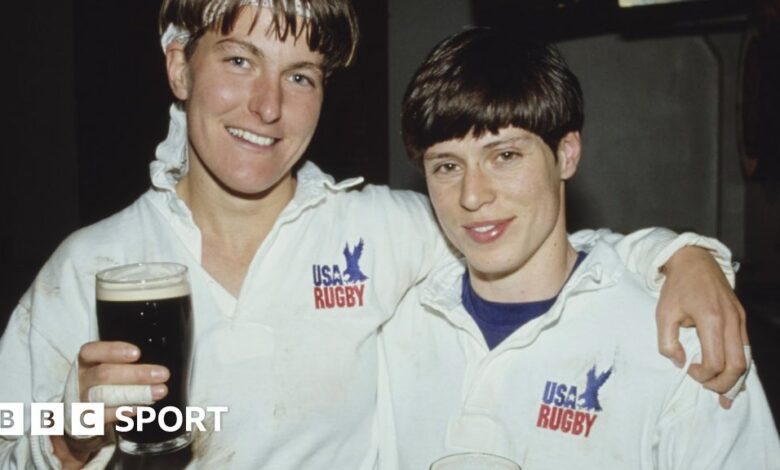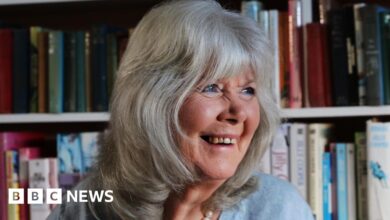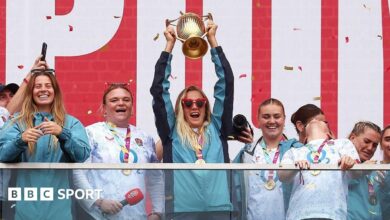Rugby World Cup: The intrigue & inspiration behind first women’s tournament of 1991

Cardiff was chosen as the host city because local authorities offered to pay for a welcoming ceremony and closing dinner.
Vernon Pugh, who would go on to be chairman of the IRB, convinced Welsh clubs to host matches and some male rugby writers took the games seriously.
On the pitch, the Japanese team was a highlight for many. They had never played a Test match before and did not score a single point throughout the tournament.
Instead they drew attention with their reportedly pink scrum caps worn by every player, some standing at 4ft 9in tall, and by bowing to opposition scorers every time a try was conceded.
If Japan was the most heart-warming team, the Soviet Union was the most intriguing.
There had been hints of what was to come when the Soviets attended the 1990 rugby festival in New Zealand. Suspicions were immediately confirmed when the side arrived at Heathrow.
Because of the sponsorship woes, teams were expected to provide their own transport to Cardiff and pay for accommodation and food. The Soviets could not. England player Carol Isherwood drove to their rescue.
A rumour swirling around the tournament also suggests the Soviets’ large entourage included KGB agents. Dr Furse stresses that she has not been able to verify that. But one thing that is down in print is a customs debacle surrounding the side.
Unable to leave their communist homeland with hard cash, the Soviets instead travelled with goods to trade. Apparently this ranged from caviar to Soviet champagne and it is said the side attempted to sell vodka on the steps of Cardiff’s City Hall, pushing their luck too far.
Griffin recalls being woken by customs officers at her door and having to go down to the Cardiff Institute, where the Soviet team were staying, to help smooth things over.
Customs were calmed, but tensions sprung up with other teams.
Not allowed to sell their goods, the Soviets were left with no money for food and were said to be “hoovering up all the breakfast” at the accommodation they shared with other sides.
World In Their Hands, a book about the tournament written by Martyn Thomas, quotes Soviet coach Vladimir Kobsev as saying at the time: “We have no money and nothing to eat. It is a desperate situation.
“The girls love rugby and are determined to play well but the danger is that they will be too weak to provide serious opposition. It is tragic, they have all the heart in the world and have saved everything to come to Wales.”
After those words hit the press, the people of Cardiff stepped in to help, with one cafe offering them a daily three-course meal and the local Marks & Spencer providing credit for clothes.
Griffin says: “The other teams who had also scrimped and saved to get there – most of them were spending their own money, it hadn’t been gifted to them by their unions – felt a bit put out. There was a little bit of resentment.”
Like Japan, the Soviet Union did not score a single point at the tournament.
Testimonies from Soviet players at that time have been hard to come by, but Scrum Queens writer John Birch spoke to Larisa Masalova in 2009, external, who said: “For most of us it was the first time we travelled abroad or even got passports. We loved that trip.”
Source link



